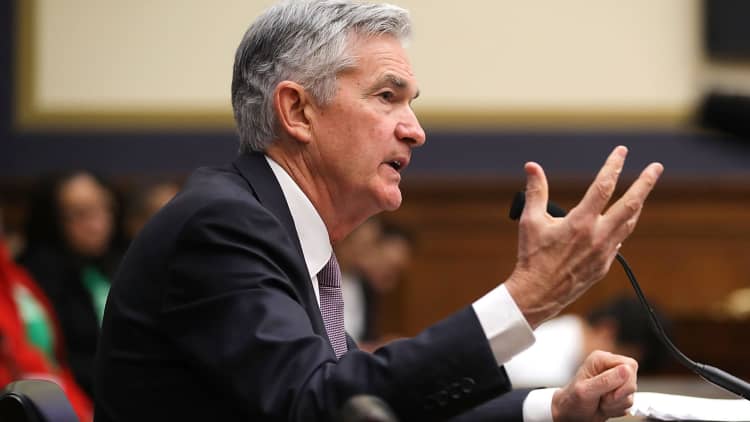
Though stocks have had a bumpy ride this week, most financial professionals will advise you to leave your long-term investments alone.
Yet there are certain circumstances in which you might want to act.
Consider what happened this week: The Dow Jones industrial average fell 724.42 points, or 2.9 percent, to end at 23,957.89 on Thursday, its biggest decline since Feb. 8. The S&P 500 dropped to 2,643.69 following a 2.5 percent decline.
The sharp drops came as President Donald Trump unveiled plans to impose new tariffs on up to $60 billion in Chinese imports.
In addition, news of the Facebook data leak has sent the company's market value down more than $50 billion this week and also had an impact on technology stocks.
We are biologically wired to react, to steer ourselves away from the danger.Michael ConwayCEO, Conway Wealth Group
What's more, the Federal Reserve's decision to raise rates this week may have also contributed to the market fluctuations, according to Jamie Cox, managing partner at Harris Financial Group in Richmond, Virginia.
The Fed approved a quarter-point rate hike on Wednesday, bringing the benchmark funds rate, which is tied to consumer interest rates, to 1.5 percent to 1.75 percent.
Many retirees will be better off with the move as interest rates on their investments rise (as long as inflation stays low.)

"The same retirees who want rates to go up have to be prepared for a little market pain to go with it," Cox said. "This is going to benefit income-oriented investors. What we're going through now is part of the process to get there."
When it comes to your long-term investments, financial advisors generally will tell you not to let those market jitters steer you off course.
"We are biologically wired to react, to steer ourselves away from the danger," said Michael Conway, CEO of Conway Wealth Group in Parsippany, New Jersey. "That's one of the surest ways to destroy wealth for long-term planning."
If you already have a long-term diversified portfolio with the right allocations, you are better off doing nothing, Conway said.
If you went to cash during the financial crisis in 2008, you would have missed an approximate 17,000 point gain in the Dow Jones industrial average over the past 10 years.
"Had someone reacted to their biological instincts and gone to cash, they would have missed out on what has gone on in the last decade," Conway said.
1.) Consider cash
Having a portion of your portfolio dedicated to cash will help you weather market downturns, according to Cox.
That is because having that money available will enable you to use it for income or spending when it would not be wise to sell stocks amid volatility, he said.
If you do sell stocks when the market is down, you will have to sell more shares to get the amount you desire. That could in turn reduce your dividend yields, Cox said.
Ideally, you want to hold 5 percent to 10 percent of your portfolio in cash, Cox said.
"If you can prevent selling your equities during a correction, having that extra cash enables you to do so," Cox said. "The correction doesn't hurt you unless you have to take action."
2.) Right size your portfolio
Don't forget to consider your age when evaluating your portfolio amid market declines.
If you're at or close to retirement and have not properly factored your time horizon in with your investment strategy, that is when you might want to consider pulling back, Conway said.
Check with a financial advisor to make sure your portfolio is in line with your objectives and risk profile.
"Stay diversified and maintain a long-term investor mind-set," Conway said.
More from Personal Finance:
Stock market volatility could kill this risky Social Security strategy
If you win $421 million Mega Millions jackpot, here's what you should do
Popular tax software may expose users to phishing attacks


